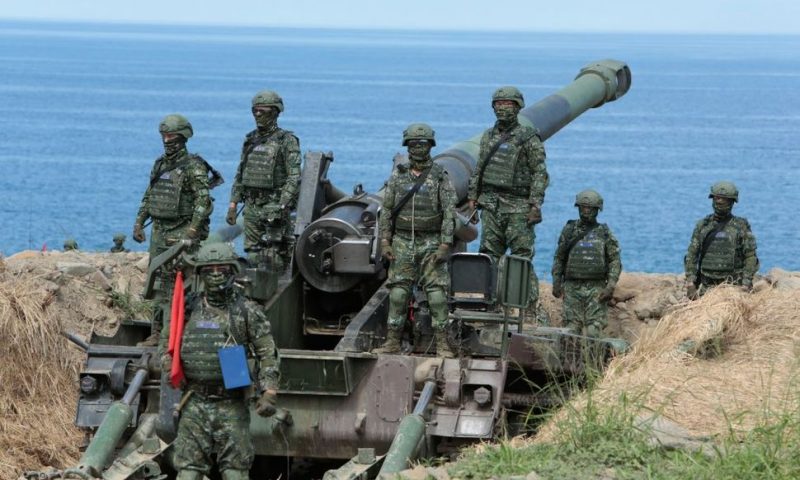A $750 million arms sale to Taiwan has provoked outrage in Beijing, where officials promise to respond to new U.S.-led exercises in the region with ‘aircraft carrier killer’ weapons.
China on Friday fired back at the Biden administration’s announcement this week of a $750 million planned arms sale to Taiwan, calling the move a “vicious provocation” and vowing retaliation at a time of already heightened military tensions.
A story published Friday morning in China’s English-language Global Times added that the sale aligns “with a U.S. strategy to create trouble for China in the Indo-Pacific,” and said the new weapons and equipment “cannot tilt the military capacity gap across the Taiwan Straits.” The Global Times is considered a mouthpiece for the Chinese Communist Party.
“China will resolutely take legitimate and necessary counter-measures,” it added, citing similar threats from the Chinese Ministry of Foreign Affairs.
The arms sale announcement from the White House on Wednesday has been met with widespread support from Congress, all but guaranteeing its completion. It marks the first such sale for President Joe Biden, whose administration, like its predecessor, has made countering China its defining foreign policy challenge. The Pentagon’s top officer on Monday said China is contributing a “fundamental change to the character of war” amid an escalation in traditional threats and the rise of new ones, like cyberwarfare.
The sale includes 40 self-propelled artillery units, which the Chinese foreign ministry considers a serious infringement on its security interests, saying earlier this week the U.S. is “causing serious damage to China-U.S. relations” and “sending a wrong signal to Taiwanese independence forces.”
The island nation – dubbed “Fortress Taiwan” among some U.S. military planners – has taken on increased significance in recent months amid American efforts to contain what it considers Chinese expansionism. China, too, has acted with growing speed recently to rectify what it sees as a century of foreign oppression. Both Beijing and Taipei claim to be the legitimate ruler over the other, though Chinese economic influence has ensured all but a dozen or so countries actually recognize Taiwan as an independent country.
Former U.S. Indo-Pacific Command chief Navy Adm. Phil Davidson said in March that he believed China may invade Taiwan within six years, though that assessment has taken on new urgency as Western nations watch with concern Beijing’s harsh crackdown on Hong Kong under the auspices of new national security rules.
“We have to ensure the status quo remains as it applies to Taiwan,” Adm. John Aquilino, Davidson’s successor, said this week at the Aspen Security Forum, when asked about the worrisome precedent China has set in Hong Kong. “Our engagements with Taiwan are to ensure that they are able to defend themselves.”
“That policy is clear and that’s why we’re here,” he said.
Aquilino’s concerns come as the U.S. leads broad exercises in and around the South China Sea with what Indo-Pacific Command called its “unmatched network of alliances and partnerships,” testing China’s commitment to international territory it considers its own.
Though China has released few details about exercises it’s conducting in response, a separate post in the Global Times on Friday said this year’s operations compare to similar “aircraft carrier killer” exercises it carried out last year.
The drills show that China is wielding “hunting rifles ready against the wolves,” it wrote.
American officials have expressed grave concerns in recent months about Chinese investments in weapons designed solely to destroy U.S. aircraft carriers – considered among the most visible and potent elements of America’s ability to project power abroad but particularly for the vast and consequential seas of the Pacific rim.
The recent rise in tensions has also marked occasional breakdowns in communication between China and Washington. Beijing criticized Defense Secretary Lloyd Austin’s outreach earlier this summer to officials other than those China offered for him to meet.

